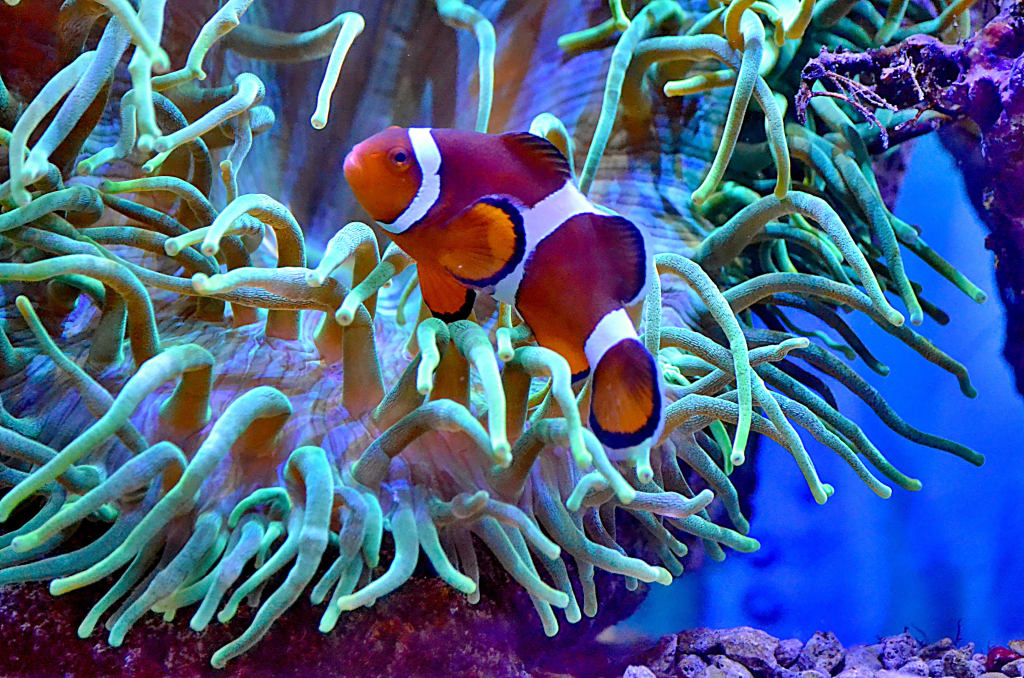What Species Would Replace Us if We Vanished?
Which Species on Earth Would Take Our Place if We Were to Disappear Completely?

What would happen if people vanished from Earth? Learn about the possible animal, plant, and extraterrestrial species that could survive in a world without humans. In this piece, explore the intriguing possibilities of a planet without humans.
Humans have dominated the globe for thousands of years, modifying it to suit our needs and aspirations. What would occur, though, if we were to vanish at once? Would nature find a way to recover, or would the world become a desolate wasteland? The intriguing idea of a world without humans will be explored in this article, along with hypothetical species that might succeed in our absence. The natural world is continually adapting and changing, including everything from insects to mammals, plants, and fungi. So, if we disappeared, what animal would take our place? Let's investigate.
Here is an interesting thought: Explore the creatures that might replace the current top species. Should humans go extinct? That is tricky, right? I mean, we are pretty cool with our high intelligence, fashion sense, ability to cook, and smartphones, even if we forget the password sometimes, but if we suddenly disappeared, what animals might evolve to develop our skills and build complex societies like we have, or would they come up with something better?
Scientists have some ideas. Thanks to modern gene sequencing technology and our understanding of evolution. We know that the climate on the planet will continue to change. So many species will need to adapt to survive convergence, which is when two unrelated organisms end up developing similar traits to succeed in a particular environment. Or they fill a niche and will also play a big role. For example, fish are perfected for life in water with their torpedo-like bodies and fins, but dolphins have evolved a very similar body even though they're warm-blooded air-breathing mammals with a completely different evolutionary background.
So maybe some animals could develop hands similar to ours to fill the same role as humans, like building cities and modifying the environment. Primates like chimpanzees and bonobos are already close to that with their opposable thumbs, which they use to make tools in the wild. It's also possible that birds, the only surviving dinosaurs, could become the smartest animals. If humans suddenly disappear birds are incredibly brainy and can flock together in large groups some such as are social.
Even if they build communal nesting sites, they may not look like human metropolises, and let's not forget octopuses, which are probably the smartest non-human animals on Earth. They can learn to distinguish between real and virtual objects and engineer their environment, but adapting to life on land might be tricky for them. You see, there's a lot we don't know about animal intelligence; and let's be honest, we, as humans, have been quite arrogant about it throughout history.
In the past, people used to think that animal intelligence could be neatly organized into a hierarchy, with humans at the top and insects at the bottom. But in the 1960s, a new generation of researchers challenged this idea and suggested that intelligence should be measured in relative rather than absolute terms. As technology has improved, we've been able to see animals for longer without disturbing them, and we've discovered they are far more intelligent than we once thought. For example, researchers in Melbourne are using remote controlled drones to study the breeding patterns of southern right whales, and artificial intelligence is helping us track and predict the movements of all sorts of creatures.
It's funny how we tend to recognize intelligence in animals when their behavior is similar to our own. For example, dolphins use names and even have assets; in fact, researchers have found that dolphins in southern Brazil have developed a distinct accent after interacting with local fishermen for over a hundred years. But it's not just mammals that are intelligent; birds and insects are pretty smart too.
Parrots, for example, have complex social groups and can differentiate between members of their species based on their relationships with each other, even though their brains are tiny like mine. Insects are capable of some pretty impressive cognitive skills. In fact, research has shown that intelligence is distributed in different ways across the animal kingdom. Some animals excel in one area but may not be as good in another. It all depends on the environmental pressures that each species faces and how they adapt to them. We all know about the usual supposition that intelligence is unique to humans and perhaps a few other primates.
I'm referring to our feline friends, the house cats. They're known for being experts at snatching treats and avoiding baths, but did you know they're also pretty smart? They have an amazing capacity for learning through repetition and observation, hence the term "copycats," and some cats, like Nora in the following story, go above and beyond. This cat was getting a little envious of all the attention that Nora's owner's piano students were getting, so she did what any cat would do: she studied them intently, picked up on their movements, and started tapping away at the keys herself. And you know what? It worked. Nora's owner and the kids were astounded, and she became somewhat of a piano sensation. She even sits at the keyboard like a professional piano student, proving that just because she lacks opposable thumbs doesn't exclude her from being a musical prodigy. The octaves would be easier to hit with paws.
Before you jump on the couch in horror, did you know that some rats are actually saving lives? Researchers in Africa have been training these furry little detectives to sniff out lung disease and saliva samples, and they're really good at it too. Rats have a nose for the job and can detect different scents that are needed to show whether a sample contains a certain bacterium or not. Nelly the pig, who is undoubtedly not your typical pig, has demonstrated to Dr. Rat that animal intelligence extends far beyond just doing tricks. While learning to fit round objects through a round hoop, Nelly was given a series of challenges, one of which was to put variously shaped objects through a hoop. Deciding to take the challenge a step further, when presented with objects that weren't round, she compared their shape with a hoop before deciding they wouldn't fit. This pig is an excellent problem-solver.
Observing how pig brains process spatial awareness and complete various tasks is intriguing. Who knew these critters with curling tails were so smart now? In addition to their adorable appearance, elephants are among the most amazing animals on Earth. These gentle giants are known for their remarkable teamwork and coordination abilities, which they use to defend their families and frighten away predators in the wild. Elephants live in clans and use low frequency rumbles to communicate with one another. They cooperate to keep their children safe. For example, elephants have a special interest in the remains of their own kind; they'll linger near elephant bones and investigate sticks of ivory much longer than they would pieces of wood. Also, when an elephant is upset, other elephants will come to comfort them. Researchers have discovered that elephants are quick learners and can work together to achieve a common goal. They even show empathy toward each other, which is a pretty rare feature in the animal kingdom.
To conclude, it might be a fascinating and thought-provoking exercise to imagine what would happen to Earth if humans suddenly vanished. The natural world would undoubtedly continue to change and adapt, as it has for millions of years, even if it is hard to predict exactly what would happen. A post-human Earth would likely look considerably different from the one we know today, whether it be due to an explosion in insect populations, the resurrection of long-extinct species, or the advent of whole new ones. In the end, considering which species might take our place if we disappeared can help us understand the enormous variety of life on Earth and the interdependence of all living things.
About the Creator
Althea March
I am a writer who searches for facts to create compelling nonfictional accounts about our everyday lives as human beings, and I am an avid writer involved in creating short fictional stories that help to stir the imagination for anyone.






Comments
Althea March is not accepting comments at the moment
Want to show your support? Send them a one-off tip.